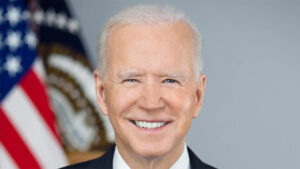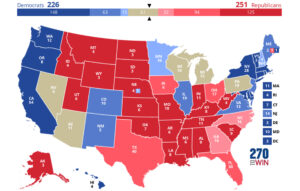With a very strong showing Andrés Manuel López Obrador won Mexico’s presidential elections July 1. The best description of López Obrador would be to combine the worst traits of Donald Trump, Hillary Clinton, Bernie Sanders, Elizabeth Warren, Ted Cruz, Jeremy Corbin, Vladimir Putin and Kim Kardashian. But perhaps without their impeccable manners.
Sorry folks, I don’t have a lot of guidance on this one. There are too many unknowns, with the biggest one being López Obrador himself. While he has been part of the Mexican political landscape for decades, this will be his first real position in national politics. He could be like another nationalist-populist – Brazil’s Luiz Inácio Lula da Silva – who dialed back the rhetoric shortly after his election, and whose policies never went as far into the wilderness as many feared during the campaign. Or he could be like Trump and the rhetoric is real. We just don’t know. And we won’t know for a bit yet. Mexico has the longest lame-duck political window in the world. López Obrador won’t actually take the reins until December.
But I can issue a few words of warning:
Both Mexico and the United States now have nationalist, populist, inexperienced leaders who believe current political alignments within their own countries as well as the broader geopolitical context are designed to cheat their people. Both regularly make political hay by demonizing those on the other side of the border.
With the entire global Order breaking down, and me – repeatedly – noting that the U.S. will not simply emerge broadly ok, but will be able to dictate the shape of the future, it is tempting to say the same will be the case with degraded American-Mexican relations. But this isn’t like American-French relations where the bickering is good fun. This really matters.
Spanish is America’s second-most common language; English is in the second slot in Mexico. Family connections across the border are the most robust in the hemisphere. Based on how you run the numbers, Mexico is either America’s top or second-largest economic relationship – a position that will hold regardless of what happens with the global Order or NAFTA. This economic relationship isn’t simply trade – this is integrated supply chains with products crossing the border multiple times. Retooling to adjust could be done, but it would take at least three years. Most important, Mexico borders the United States. Trouble in bilateral relations are not a world away, but right next door.
NAFTA may have its faults, but its economic success in Mexico has made net Mexican migration to the U.S. negative for a decade because it gives Mexicans jobs. Smash the agreements that employ Mexicans, and two results among many will be vast increases in drug flows and illegal migration as Mexicans find it harder to find a 9-to-5. A wall would only encourage such behavior.
Hostility between the United States and Mexico impacts immigration, trade, financial stability, supply chains, manufacturing attractiveness, wealth levels, drug policy, water rights, agricultural markets, the works. If there is one country the Americans need to have a productive relationship with, it is Mexico. Texas is particularly vulnerable to everything that could potentially go wrong.
I’ve no doubt that the United States – under any president – can “handle” Mexico. But Mexico isn’t Paraguay. Mexico has 130 million people and is a $1 trillion economy. Whatever shape this and future administrations beat relations into will take time and effort. Time and effort that would be better spent on locations where partnership is not the best (and easiest) option.
Yet, unfortunately, for now all we can do is wait and watch. Both Trump and López Obrador are famous for their unwillingness to take advice from anyone. And for the next five months López Obrador has a lot of free time on his hands to play on Twitter with his American counterpart.







